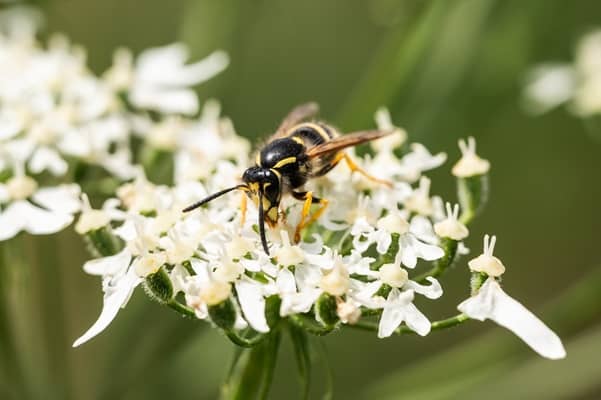Experts at British Pest Control Association (BPCA) are urging householders in the UK to seek help for wasp nests as warm weather continues.
A warm spring and early heatwave may have created better conditions for wasps this year, with BPCA members reporting a noticeable increase in wasp activity across the UK.
In late summer, worker wasps start to leave their nests and feast on fermented fruit, which can cause them to become inebriated, more aggressive and more likely to sting – but this could happen earlier than usual this year due to the long hot spell.
Niall Gallagher, BPCA’s technical manager said: “Anecdotally, our members have reported a noticeable increase in wasp activity across the UK this year, especially when compared to 2024, which was widely regarded as a poor year for wasps.
“This summer’s warmer conditions, particularly the early heatwave, appear to have created more favourable circumstances for wasp development.
“Warm and dry springs can lead to higher survival rates for overwintering queens, resulting in more nests come summer. Warmer temperatures can accelerate the development of wasp broods, potentially bringing more nests to maturity earlier in the season.”
Wasps are accidental pollinators and nests in low traffic areas can be safely left alone, but nests that bring wasps into regular contact with humans need to be dealt with by a pest professional.
Niall added: “Overall, it’s shaping up to be a strong year for wasps. That means more public encounters and, inevitably, more calls to pest professionals. Anyone with a wasp nest in or near their home should never try to remove it themselves.
“Wasps can be aggressive if disturbed. Our advice is always to call a professional pest controller who has the right equipment and protective gear to deal with the issue safely.”
Wasp stings can trigger anaphylaxis – an allergic reaction that can be fatal. If anaphylaxis is suspected, dial 999 immediately.
BPCA members are trained, experienced professionals with access to a range of specialist products not available to the public.
They are trained, qualified and regularly assessed to the British Standard in Pest Management BS EN 16636.
BPCA members are also endorsed by the Government via the TrustMark quality scheme.
To find a BPCA member, visit: bpca.org.uk/find.

